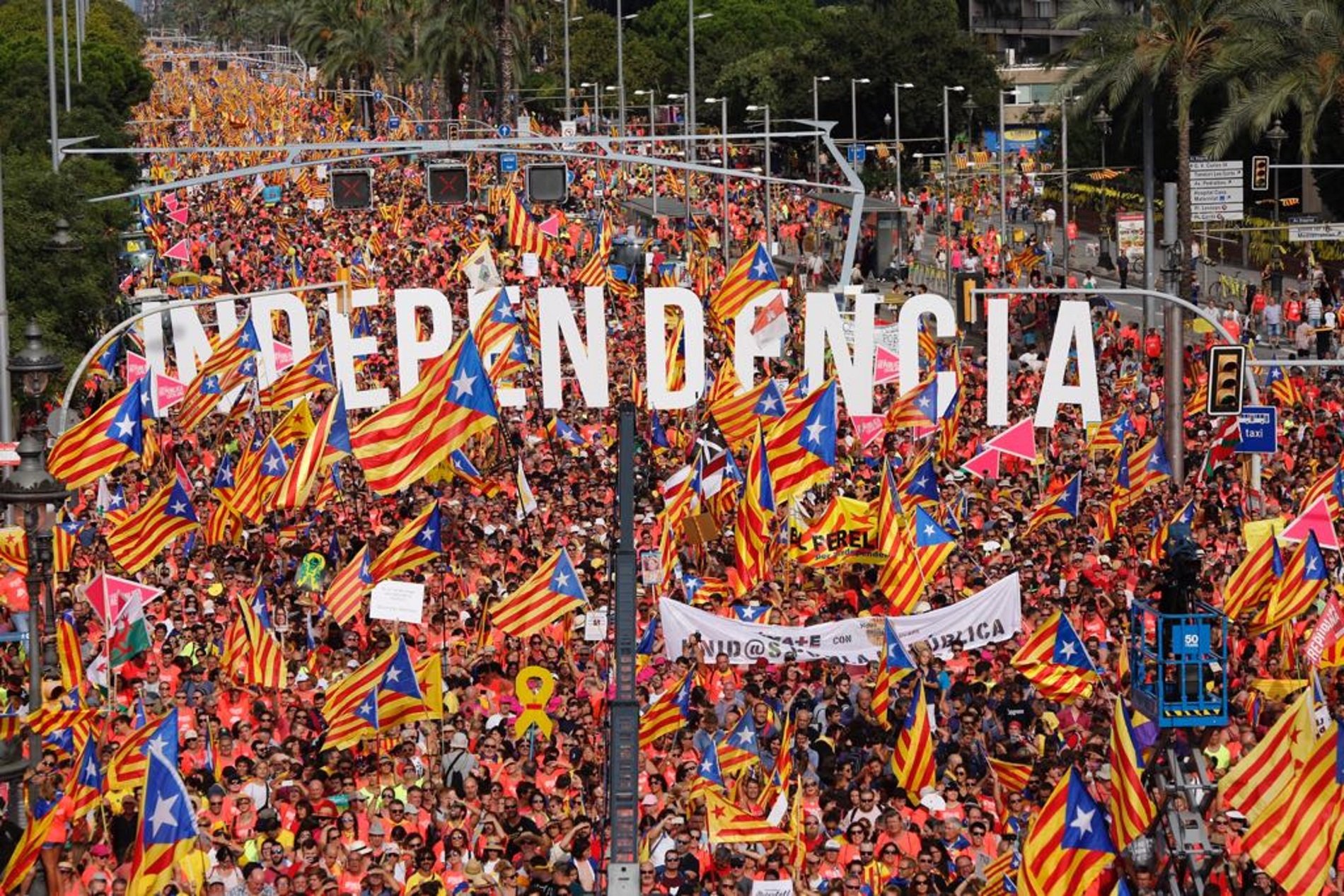The Washington Post has published the findings of a study of the Catalan independence movement - and its relationship with Spanish politics - over a five year period. The work, by researchers Nafees Hamid, Clara Petrus, and Hammad Sheikh, shows clearly that the Spanish government's "hard line strategy" on Catalan independence hasn't worked. The researchers argue that this failed approach, aimed at "wearing down the movement", has increased the radicalization of Spanish nationalism, reduced the number of moderate Catalans and hardened the views of independence supporters.
The study suggests that the Catalan issue has transformed Spanish politics and the "long denial of independence leaders’ requests for dialogue" has been a key issue in this transformation - which the authors view as highly negative. They conclude that the current trends could lead to "long-term social fragmentation both within Spain and in its broader relationship with Europe."
Rise in Spanish nationalism
The researchers warn that radical nationalism has increased in Spain as a result of a "zero tolerance" approach towards Catalan independence. They note that the electoral rise of far-right Vox is making this trend visible, and predict that in addition to trying to crush the independence movement, Spain's extreme right will end up turning its attention to feminists, the LGBTQ community and Muslims.
Pro-independence ideas changing
The study's authors find that in recent years there has been an increase in independence supporters who justify the use of some degree of violence. On the other hand, the survey shows a "narrowing" among pro-independence activists in their definition of what Catalan identity means. If in 2014 the independence movement considered that, for the most part, anyone could be Catalan, there is now an increase in the number of independence supporters surveyed who identify Catalan-ness with a Catalan origin. The sense of identity is growing in the pro-independence world.
No moderates
The Washington Post-published survey shows a fall in the number of Catalans with moderate views on the issue - those who believe that it is possible for Catalonia to remain within an open, federal Spanish state. More and more people see Spanish and Catalan identities as separate and unable to be shared.
Fall in pro-EU feeling
The study also finds that the Catalan independence movement's relationship with Europe has changed in the last five years. In 2014, the independence movement was strongly pro-European; now, the authors note that respondents who identified more as Catalan than as Spanish have less tendency to identify with Europe. They conclude that independence supporters were disappointed by the EU's solid support for the unity of Spain and its refusal to act as an intermediary in the conflict.
The research
The three researchers are members of the Artis International consortium, which has been studying the evolution of the Catalan independence movement since 2014, with the support of the Minerva Initiative, a US government programme aimed at funding research into issues of "strategic importance to US national security policy". Under the study, dozens of interviews were conducted with politicians and activists, as well as longitudinal surveys with a large group of people to study their political evolution over time. The last such survey, in autumn 2019, looked at the changes in the political attitudes following the sentencing of nine pro-independence leaders to long jail terms in October.

